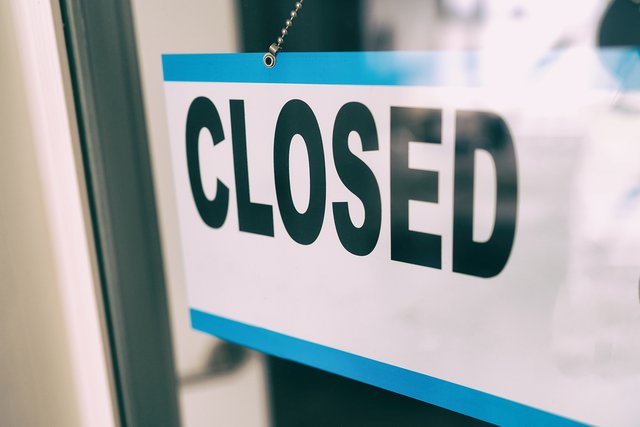Post-COVID Financial Relief for the Cannabis Industry

Of its numerous tragic repercussions, the COVID-19 pandemic has left a significant mark on the global economy as it pressures thousands of businesses to temporarily – if not permanently – shut their doors. April data from the American Bankruptcy Institute suggested a 26% increase in Chapter 11 filings from 2019.1 Several retail and energy companies have already buckled under financial pressure, with dozens more seemingly headed in the same direction.2
“As financial challenges continue to escalate amid this crisis,” Amy Quackenboss, American Bankruptcy Institute executive director stated in an early-May press release, “bankruptcy is sure to offer a financial safe harbor from the economic storm.”3
Consequences of Cannabis’ Federal Illegality
Unfortunately for companies operating in the cannabis industry, filing for bankruptcy is not an option. Scheduled in the highest tier of the Controlled Substances Act (the “CSA”), cannabis remains federally illegal, while the U.S. Bankruptcy Code mandates that all bankruptcy cases be handled in federal courts.
For the hemp and CBD markets, associated businesses should, in theory, be eligible for bankruptcy assistance as products with a maximum of 0.3% THC concentration on a dry-weight basis were removed from the CSA by the Agriculture Improvement Act of 2018 (the “2018 Farm Bill”).
The ensuing conflict of administering assets that remain illegal under federal law creates a unique hurdle for otherwise state-legal businesses experiencing financial hardship.
The absence of substantial bankruptcy relief is one of several financial obstacles that cannabis companies face, in addition to restricted banking services and insurance options. Perhaps most infuriating, cannabis companies have been all-but excluded from federal benefits in the form of Small Business Administration (“SBA”) loan programs and remain ineligible for federal loans established in the wake of the COVID-19 pandemic.
The severity of the cannabis industry’s financial disadvantages has not gone unnoticed by lawmakers. After the Secure and Fair Enforcement Banking Act’s (the “SAFE Banking Act”) successful passage through the US House of Representatives last September, select legislators have attempted to push cannabis business relief through alternative proposals while the SAFE Banking Act awaits a decision from the Senate. In mid-April, Representative Earl Blumenauer (D-OR) introduced H.R. 6602: Emergency Cannabis Small Business Health and Safety Act, which, if passed, would make cannabis businesses eligible for certain federal relief opportunities, including the Coronavirus Aid, Relief, and Economic Security Act loan programs, like the Paycheck Protection Program.
While these legislative efforts could bring some long-awaited assistance to the cannabis market, these bills, unfortunately, fall short of providing business owners immediate aid amidst the current crisis. However, as the industry faces the same economic pressures as most other industries across the globe, cannabis operations still have a few viable alternatives to obtain financial relief outside of traditional federal bankruptcy laws.

Without access to traditional bankruptcy, some businesses may be forced to close to reevaluate operations and methods of addressing debt.
Assignment for Benefit of Creditors
An Assignment for Benefit of Creditors (an “ABC”) operates within state law – not federal law – as an insolvency proceeding that assists in the orderly liquidation of a company’s assets. As a liquidation process, an ABC cannot help a business restructure with continued operations like traditional Chapter 13 Bankruptcy can, but it may provide an avenue for investors to neatly handle a declining business in the hopes of trying again with a future enterprise.
In an ABC, a company assigns its assets to a trust administered by a company-appointed “assignee.” The assignee, much like a trustee in a typical bankruptcy, will liquidate the business’s assets and distribute the proceeds to the company’s creditors. A cannabis business considering an ABC should consider selecting an assignee well-acquainted with industry regulations.
During liquidation, the company is separated from its assets, and afterward, unsecured creditors’ claims against the company will be rendered null, although creditors retain their rights to collect on third parties, such as guarantors. Secured creditors will retain their rights in their collateral.
In the event that investors are responsible for the entity’s debts, an ABC may prompt creditors to pursue investor obligations, and due to their association with the cannabis industry, investors may be unable to use bankruptcy to discharge their own debts.
While an ABC is a viable alternative to bankruptcy proceedings, it lacks certain helpful elements of a traditional bankruptcy, such as the automatic stay prohibiting creditors from taking adverse action against a debtor upon a bankruptcy filing. Depending on the jurisdiction, existing state law may not be clear as to whether an assignee has the authority to resolve the businesses’ assets, especially considering regulatory requirements associated with marijuana inventory. In those instances, the assignee may need court authorization to administer the company’s assets.
Receiverships
Unlike an ABC assignee, receivers are appointed to manage a company’s operations. However, the initiation of a receivership requires a state court order, the catalyst of which is typically a concerned shareholder or creditor, or a partnership dispute. A receivership may facilitate attempts to stabilize a company’s economic situation, but the receiver typically takes complete control over the process, meaning that the company’s ownership and management have limited authority to manage the affairs of the company.
Jurisdictional considerations also come into play in determining the receiver’s role in the disposition of a cannabis company’s assets. Statutes and regulations in Colorado, Washington, Oregon, and California, for example, permit receivers to operate cannabis businesses and/or dispose of assets, whereas states like Oklahoma and Michigan do not. In the absence of clear statutory or regulatory authority, like ABC assignees, court authorization can be obtained as a necessary means of executing receivership duties.
Workouts
A more informal option that cannabis companies can use to regain some financial stability is a workout. Workouts can be utilized to provide transparency between a company and its creditor/creditors as the parties work to rearrange the terms of debt repayment. “A “composition agreement” allows a debtor to pay its creditors pro-rata payments from a clearly established pool of funds; a method for a company to broadly restructure its debts, much like an ABC or traditional bankruptcy.
Given the clear signs of economic fallout due to the COVID-19 pandemic, and the lack of certainty in the future, a successful workout may provide a company with temporary reprieve, and an opportunity to reorganize and continue operations.

Financial relief is currently possible in some forms for the cannabis industry, but the industry aims to achieve long-standing success and opportunity through federal recognition.
Changes on the Horizon
While financially distressed cannabis companies are most likely to achieve economic relief via one of the strategies outlined above, court opinion may be shifting towards allowing indirect cannabis businesses – landlords, equipment manufacturers, etc. – to file for bankruptcy.
Although courts in several jurisdictions have consistently refused bankruptcy relief to parties that receive indirect cannabis industry income, there has been recent progress in the United States Court of Appeals for the Ninth Circuit Court. In May of 2019, the Ninth Circuit confirmed a Chapter 11 reorganization plan from a landlord that received rental income from a cannabis grower. Following the court’s ruling, other judges within the Ninth Circuit have recognized the possibility of cannabis-related business bankruptcy relief in subsequent cases, even if bankruptcy was not allowed to proceed in that particular matter.4
The silver lining of the COVID-19 pandemic is that Americans and the federal government have been forced to reevaluate many aspects of our daily lives, which could be a catalyst for significant change within the cannabis industry.
Twenty-eight states deemed medical cannabis businesses “essential” during their respective shelter-in-place orders. Eight of those states also deemed recreational cannabis businesses as “essential.” Even ten years ago, this was inconceivable. Public opinion towards cannabis has shifted dramatically in the last decade. And with pending legislation such as the SAFE Banking Act garnering support in Congress,5 the federal government’s opinion towards cannabis is also trending in the right direction, albeit very slowly. The question is not whether cannabis businesses will be able to avail themselves of federal bankruptcy protections; the question is when.
If you have any question about the various alternatives to bankruptcy available to the cannabis industry, or for more information on small business financial relief, please feel free to contact us.
- Miller, Hannah, and Christina Cheddar Berk. “JC Penney Could Join a Growing List of Bankruptcies during the Coronavirus Pandemic.” CNBC. CNBC, LLC, May 15, 2020. https://www.cnbc.com/2020/05/15/these-companies-have-filed-for-bankruptcy-since-the-coronavirus-pandemic.html
- Bomey, Nathan. “Bankruptcy Cases, Store Closings Pile up as Coronavirus Wreaks Havoc for J.C. Penney, Hertz, Others.” USA Today. Gannett Satellite Information Network, LLC, May 27, 2020. https://www.usatoday.com/story/money/2020/05/27/chapter-11-bankruptcy-retail-jcpenney-tuesday-morning-coronavirus/5265841002/
- Miller, Hannah, and Christina Cheddar Berk. “JC Penney Could Join a Growing List of Bankruptcies during the Coronavirus Pandemic.”
- https://www.ca9.uscourts.gov/bap/
- Mitchell, Thomas. “Gardner: Marijuana Banking Would Pass Senate If Vote Were Held,” June 4, 2020. https://www.westword.com/marijuana/senate-would-pass-safe-banking-act-cory-gardner-says-11722306
Author: Nadav Aschner
The information in this blog post (the "Blog" or "Post") is provided as news and/or commentary for general informational purposes only. The information herein does not, and shall never, constitute legal advice and therefore cannot be relied upon as a legal opinion. Nothing in this Blog constitutes attorney communication and is not privileged information. Nothing in the Post or on this website creates any kind of attorney-client relationship or privilege of any kind.
Originally published June 17, 2020, at https://therodmanlawgroup.com.